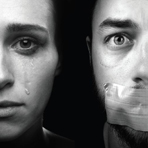6. Legal consequences of the criminal liability of legal entities
Why has the criminal liability of legal entities been introduced?
The need to introduce the sanctions for legal entities, regarding crime that has been committed in connection with any illicit activities, is a requirement of many international conventions, directives and other legally binding acts. One of these documents is the OECD Convention on Combating Bribery of Foreign Public Officials in International Business Transactions (herein "the Convention"), signed in Paris on 17 December 1997. In the Slovak Republic, it entered into force on 23 November 1999 and was published through a notification of the Ministry of Foreign Affairs of the Slovak Republic under No 318/1999 Coll.
Pursuant to Article 2 of the Convention, each Party is obliged to adopt, in accordance with its legal principles, measures necessary to establish the legal liability of legal entities for the bribery of foreign public officials. Although the Convention, as well as a number of other international legal instruments which the Slovak Republic has adhered to and is bound by, imposes an obligation to establish the criminal liability of legal entities, this requirement, however, has been effectively introduced into the legal system of the Slovak Republic through Act No 91/2016 Coll. on Criminal Liability of Legal Entities and on Amendments to Certain Laws, as amended, which entered into force on 1 July 2016.
With the introduction of The Criminal Liability of Legal Entities Act, the historically established concept of an exclusive individual liability of a natural person for fault, as laid down in the Criminal Code, has been changed. The detection of criminal offences and the application of the principle of individual criminal liability to a concrete natural person in the complex management structures of legal entities has not been sufficiently effective. In order to increase the effectiveness of the criminal justice system, introducing collective liability has been promoted worldwide as the direct liability of legal entities for committed offences.
Which legal entities are subject to criminal liability?
The Criminal Liability of Legal Entities Act does not define the concept of "legal entity", which is defined in the Civil Code[1] and partly also in the Commercial Code[2]. According to the Civil Code, the legal entities that can be held liable are the entities that have the capacity to have statutory rights and are subject to legal obligations.
According to the Civil Code, legal entities are associations of natural or legal entities (commercial companies and cooperatives, joint ventures, political parties and movements, church and religious societies, civic associations and other associations, common interest associations of legal entities), special purpose property units (foundations, state and non-state funds), local self-government units (municipalities and higher territorial units), and other entities as provided for by law (for example, state-owned enterprises, state monetary institutions, public service broadcasting, public television). The state is also a legal entity if it is a participant in civil-law relations.[3])
Under The Criminal Liability of Legal Entities Act, a crime is deemed to have been committed by a legal entity if the legal entity benefited from the crime, if the crime was perpetrated on behalf of it, in the scope of its activities or through it, if the legal entity acted through:
- a statutory body or a member of the statutory body (e.g. the managing partner of a limited liability company or a member of the board of directors of a joint stock company);
- a person in charge of control or supervision over a legal entity (e.g. a member of the Supervisory Board); or
- another person authorized to represent the legal entity (such as a holder of procuration) or to adopt decisions on behalf of it (e.g. the Chief Executive Officer).
The Act goes on to specify that a criminal offence is committed by a legal entity even if the above mentioned persons by exercising poor supervision or control which was their duty, albeit negligently, facilitated the commission of a criminal offence by a person acting within the scope of their authority (e.g. an employee).
The Act implicitly requires a legal entity to exercise supervision and control in order to prevent the persons acting under their authority from committing crimes. For this purpose, it is necessary for legal entities to implement and consistently apply compliance programmes, i.e. programmes of prevention, integrity and compliance with generally binding legal regulations and internal regulations governing control processes and supervision over the activities of employees.
Basic principles of legal entities incurring criminal liability
No criminal liability to a natural person is required for inferring against a legal personand the criminal liability of a legal entity is not conditional upon the identification of a concrete natural person having acted on behalf of a legal entity in a manner prescribed by law.
- For the same criminal offence, criminal proceedings against both a legal entity and a natural person may be concurrently conducted, each body being separately accountable for its conduct.
- Criminal liability of natural persons is based on the principle of responsibility, however, when it comes to the criminal offences committed by legal entities, enquiry into their fault is precluded, since a legal entity as a legal construct does not act on its own conscious volition, which is the basis for distinguishing the fault.
- The fault in relation to the criminal liability of legal entities is assessed in terms of the attributability of the unlawful conduct of natural persons directly to the legal entity. Legal entities thus can commit intentional criminal activities as well as negligent ones.
- A legal entity is not held criminally liable when an employee acts exclusively in his own interest. The actions of such a person cannot therefore be attributed to a legal entity if such an employee indeed acted on behalf of a legal entity or through it, but acted solely in his/her own interest.
- A criminal offence shall not be pronounced against a legal entity if, considering the activities pursued by the legal entity, the manner of committing a criminal offence, its consequences and the circumstances under which such criminal offence was committed, the significance of failure to fulfil the obligations of the legal entity in the area of supervision and control is negligible. It is a form of material correction in relation to the assessment of the criminal liability of the legal entity for acts committed exclusively by its employees.
- Criminal liability of a legal entity is applicable despite bankruptcy adjudication, entry into liquidation, winding-up or receivership. In the event that a legal entity is wound up, its criminal liability, including any pending punishments, is automatically passed on to all of its legal successors. This liability is not transferred to individuals.
What criminal offences committed by legal entities are subject to criminal sanctions?
The Criminal Liability of Legal Entities Act regulates the criminal liability of legal entities with the exhaustive enumeration of criminal offences, which are laid down in the Specific Part of the Criminal Code. These are, in particular, economic criminal offences, criminal offences against life and limb, criminal offences against freedom and human dignity, criminal offences of trafficking in human beings and drugs, money loundering damage to the financial interests of the European Union, money forgery, endangering public safety, prohibited acquisition and possession of firearms and trafficking in them, criminal offences of extremism, criminal offences of terrorism, criminal offences involving child pornography, and environmental criminal offences.
The list of criminal offences for which a legal entity can be penalized also includes the criminal offences of accepting a bribe pursuant to Sections 328 through 330 of the Criminal Code, the criminal offences of offering and giving a bribe under Sections 332 through 334 of the Criminal Code, the criminal offences of trading in influence under Section 336 of the Criminal Code. The criminal offences of electoral corruption under Section 336a of the Criminal Code and the criminal offences of sports corruption pursuant to Section 336b of the Criminal Code are not included in the list of unlawful delicts attributable to legal entities due to the specific facts and merits of these corrupt criminal offences.
For all other criminal offences that are not listed in the Criminal Liability of Legal Entities Act, only natural persons may be prosecuted, even though these criminal offences have been committed in favour of a legal entity, on behalf of it, in the scope of its activities or through it.
What kind of sanctions await legal entities for the defined criminal offences?
The Criminal Liability of Legal Entities Act was drawn up as a separate legal regulation and has incorporated the principle of subsidiarity with particular reference to the Criminal Code[4] and the Code of Criminal Procedure[5]. This means that the criminal liability of a legal entity and the penalties imposed on a legal entity are subject to the Criminal Code, and criminal proceedings against a legal entity is subject to the Code of Criminal Procedure, unless the nature of the matter precludes it, or unless the Act on Criminal Liability of Legal Entities provides otherwise.
When having committed criminal offences, legal entities face criminal penalties, namely the dissolution of a legal entity, forfeiture of the relevant property, forfeiture of the relevant thing, pecuniary penalty, disqualification from undertaking certain activities, ban on receiving grants or subsidies, prohibition to receive funding from the European Union, ban on participation in public procurement, disclosure of the conviction. The pecuniary penalty may range from € 1,500.00 to € 1,600,000.00. The court may impose the penalties of disqualification from undertaking certain activities, prohibition on receiving grants or subsidies, prohibition to receive funding from the European Union and ban on participation in public procurement, which may range from one to ten years. The penalty of disclosure of the conviction cannot be imposed as a separate sentence.
The law also addresses the question of the withdrawal of criminal liability as a result of the principle of active repentance application, but explicitly excludes its application if a legal entity has committed one of the criminal offences of accepting a bribe, giving a bribe, trading in influence or the criminal offence of damage to the financial interests of the European Union. The legislation thus favours preventing and remediating the harmful consequences if they have occurred rather than applying the criminal liability itself.
What principles does the Act foresee when imposing penalties?
In determining the type of sentence and its duration, the court takes into account the nature and gravity of the offence, background of the legal entity, including its activities carried out to date and its financial circumstances, as well as whether the legal entity provides public utility services of strategic importance for national economy, defence or security.
When imposing sanctions, the court also takes into account the employees of the legal entity, legitimate interests of the injured parties and creditors of the legal entity, the activities of the legal entity after committing the criminal offence, in particular its effective efforts to prevent harmful consequences of the criminal offence or to voluntarily compensate for the damage caused, impact of the punishment upon further activities of the legal entity, as well as the benefits arising out of a criminal offence committed by the legal entity in the status of an accomplice.
What is the importance of introducing the concept of criminal liability of legal entities?
The concept of criminal liability of legal entities under the conditions of the Slovak Republic tightens repressive measures for illegal acts of legal entities on the one hand, and has a preventive effect on legal entities on the other hand, therefore ensuring the protection of law-abiding entities in the Slovak Republic.
By introducing the criminal liability of legal entities into the legal system, the Slovak Republic has fulfilled its commitment to the OECD and to other international organizations that have issued a series of international documents binding on the Slovak Republic. By creating its internal anti-corruption environment interacting with the interests of the international grouping of the OECD countries, the Slovak Republic contributes to the creation of a secure political and economic space in the interest of the development of the world economy and the expansion of economic growth on a global scale.
Remember
In accordance with the Act on Criminal Liability of Legal Entities, apart from natural persons, legal entities are also held liable for a defined range of criminal offences.
- Criminal liability of legal entities is based on the principle of the attributability of the unlawful conduct of a natural person directly to a legal entity.
- Criminal liability of legal entities does not cover the state and its authorities, other states and their authorities, international organizations, municipalities, higher territorial units and legal entities that are established by law at the time of committing the criminal offence.
- Criminal liability of legal entities applies only to criminal offences as defined by law, including the criminal offences of active and passive bribery and trading in influence.
- Criminal liability of legal entities that have been dissolved, including the penalties imposed, is transferred to all its legal successors.
- In order to exclude the criminal liability of a legal entity upon failure of an employee, the Act requires the introduction of preventive programmes, integrity standards, and compliance with generally binding legal regulations and internal regulations governing the management, control and supervision over the activities of employees.
[1] Section 18 par. 1, par. 2 of the Civil Code
[2] Section 2 par. 1 of the Civil Code
[3] Section 21 of the Civil Code
[4] Act No 300/2005 Coll., The Criminal Code, as amended
[5] Act No 301/2005 Coll., The Code of Criminal Procedure, as amended











